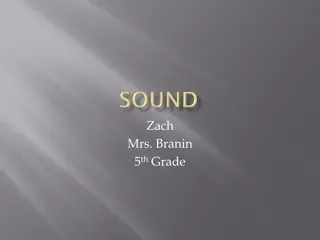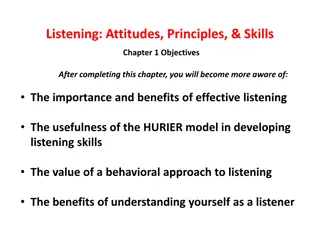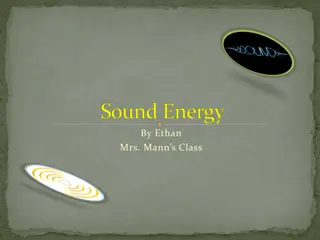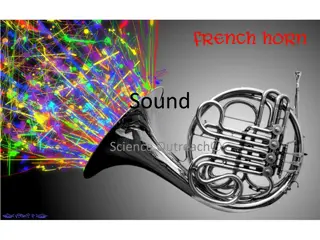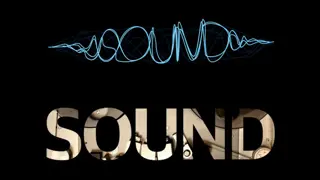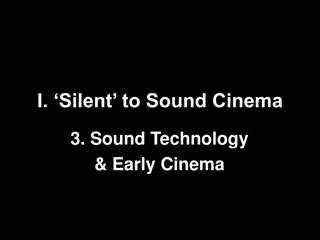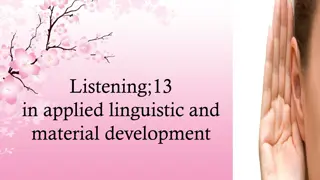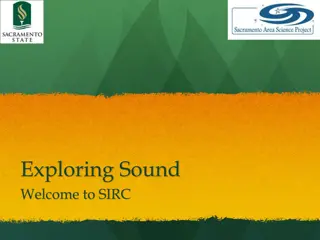Exploring Histories of Sound Through Listening and Aural History
Delve into the fascinating world of aural history and the significance of listening in understanding the past. From the fusion of sound and technology to the evolution of acoustic archives, historians are now embarking on a journey to interpret history through the unique lens of auditory experiences. Discover the transformative power of aural narratives and how historians are redefining traditional historical methodologies through the study of sound.
Download Presentation

Please find below an Image/Link to download the presentation.
The content on the website is provided AS IS for your information and personal use only. It may not be sold, licensed, or shared on other websites without obtaining consent from the author. Download presentation by click this link. If you encounter any issues during the download, it is possible that the publisher has removed the file from their server.
E N D
Presentation Transcript
1. Listening to History / Histories of Listening 2. Histories of Sound and Technology 3. Acoustic Archives
Why are historians now beginning to listen to the past?
Why are historians now beginning to listen to the past? Listening to History
Why are historians now beginning to listen to the past? Listening to History Aural history
Why are historians now beginning to listen to the past? Listening to History Aural history And how are they listening?
Why are historians now beginning to listen to the past? Listening to History Aural history And how are they listening? Histories of Listening
Why are historians now beginning to listen to the past? Listening to History Aural history And how are they listening? Histories of Listening History of aurality
Listening to History / Histories of Listening: 1. Bells, identity, 19th Century French village (Corbin) 2. Feminist historiography of electronic music (Rodgers)
1. Identity, Bells, and the 19th Century French Village
In the nineteenth century, at least in the countryside, bell ringing defined a space within which only fragmented discontinuous noises were heard, none of which could really vie with the bell tower. (p. 185)
The functions of bells in the 19th century French countryside:
The functions of bells in the 19th century French countryside: Marking territorial identity
The functions of bells in the 19th century French countryside: Marking territorial identity Sacral recharging of the surrounding space (p. 185)
The functions of bells in the 19th century French countryside: Marking territorial identity Sacral recharging of the surrounding space (p. 185) Orientation
The functions of bells in the 19th century French countryside: Marking territorial identity Sacral recharging of the surrounding space (p. 185) Orientation Prophylactic virtue
The functions of bells in the 19th century French countryside: Marking territorial identity Sacral recharging of the surrounding space (p. 185) Orientation Prophylactic virtue To rarefy the air (p. 189)
The functions of bells in the 19th century French countryside: Marking territorial identity Sacral recharging of the surrounding space (p. 185) Orientation Prophylactic virtue To rarefy the air (p. 189) Temporal marker
What language and names are inscribed on these bronze bells?
What language and names are inscribed on these bronze bells? Who has bells rung in their honor?
Through bells an individual was better able to apprehend the identity of the group to which he belonged. They helped him locate himself in space and time. They audibly proclaimed to him the order of the society within which his life unfolded, and made manifest the power of the constituted authorities (p. 200)
2. Towards A Feminist Historiography of Electronic Music
Rodgers historiography: Origins stories (e.g. Russolo sArt of Noises) tend to normalize hegemonic cultural practices
Rodgers historiography: Origins stories (e.g. Russolo sArt of Noises) tend to normalize hegemonic cultural practices The tools for making electronic music are not innocent
Rodgers historiography: Origins stories (e.g. Russolo sArt of Noises) tend to normalize hegemonic cultural practices The tools for making electronic music are not innocent Cagian silence
Rodgers historiography: Origins stories (e.g. Russolo sArt of Noises) tend to normalize hegemonic cultural practices The tools for making electronic music are not innocent Cagian silence The logic of reproduction
Rodgers historiography: Origins stories (e.g. Russolo sArt of Noises) tend to normalize hegemonic cultural practices The tools for making electronic music are not innocent Cagian silence The logic of reproduction Works by women electronic musicians suggest different, more imaginative ways to navigate this history
Extra Credit: Link the listening practice, acoustic experience, or sound object you are writing about in your autobiographical essay to one of the historiographies we are studying this week: Bells, identity, and 19th Century French Village life (Corbin) Feminist Historiography of Electronic Music (Rodgers) Post in Sakai Forum for discussion on Thursday.







